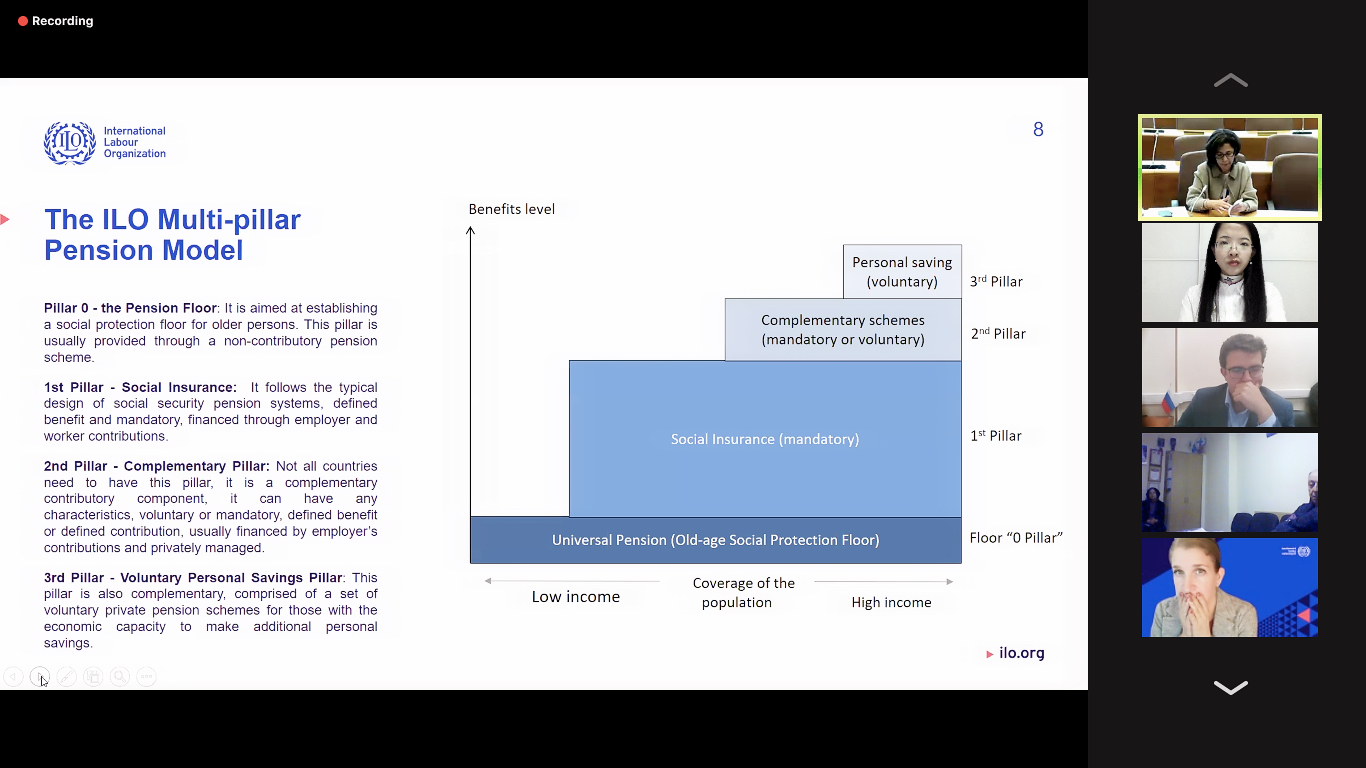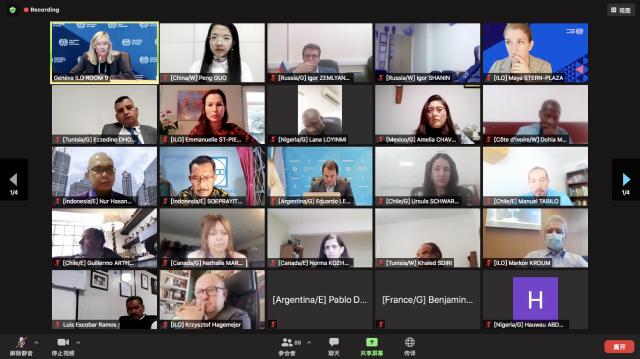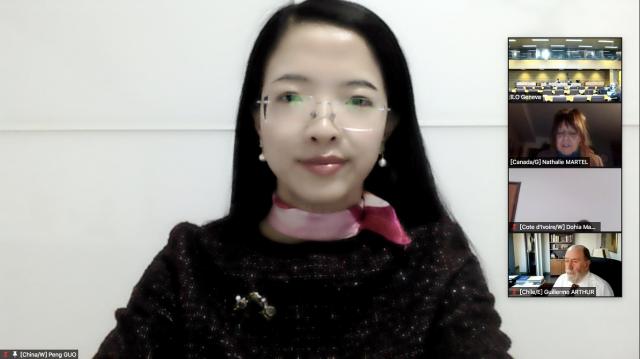From November 30 to December 4, the International Labour Organization organized an online Tripartite Roundtable Conference on 'Pension Insurance Dynamics and Reform'. Government, business, and worker representatives from 13 countries in Asia, Europe, Africa, the Americas, and the Arab world participated in the event. Guo Peng, associate professor from the College of Labor and Social Security at CULR's School of Public Policy and Management was invited to attend the preparatory meetings for the worker group held on October 22 and November 20, as well as the full tripartite meeting held from November 30 to December 4.

With changes in population structure and the emergence of new forms of employment, many countries have initiated a new wave of pension insurance reforms. This Tripartite Roundtable Conference was held against this backdrop. The conference aimed to learn from the experiences of participating countries in designing, expanding, and reforming their pension insurance systems. Discussions were based on the core principles and minimum standards of the International Labour Organization, proposing general reform recommendations for other countries.

The conference focused on five aspects: first, it made a comprehensive review of the social security principles of International Labour Organization, emphasizing the importance of achieving these principles in building a universal, comprehensive, adequate, and sustainable pension insurance system; second, it made an introduction to global trends in pension insurance reform, particularly reform measures related to population aging and new forms of employment implemented by participating countries; third, government, business, and worker representatives from the 13 participating countries respectively introduced their experiences in designing, expanding, and reforming pension insurance systems, and discussed relevant policies and reform proposals based on the core principles and minimum standards of the International Labour Organization; fourth, discussions and sharing of key points were made by government, business, and worker groups separately; fifth, discussion were made on the framework of the Roundtable Conference summary report based on the above topics.

During the conference, the Workers' Group Chairperson presented the results of the Workers' Group discussions on the nine principles of the International Labour Organization: “gradual achievement of universal coverage”, “social solidarity and shared financing”, “access to adequate and predictable benefits”, “overall and primary responsibility of the state”, “non-discrimination, gender equality, and response to special needs”, “financial, fiscal, and economic sustainability”, “transparent administration and governance”, “involvement of social partners and consultation with other stakeholders”, and “regular adjustment of pension benefits to adapt to changes in the cost of living and income levels”. It emphasized that social security rights are human rights, and countries should follow the International Labour Organization's Recommendation No. 202, providing predictable and adequate pension benefits to achieve universal coverage. Special attention should be paid to the issue of expanding coverage for informal employment groups and other special groups, but merely including them is not enough; the adequacy of pension benefits should also be ensured so that workers can lead a decent life. In addition, in the context of population aging faced by many countries, it is not sufficient to simply replace a pay-as-you-go system with a funded system, shifting too much risk onto workers. Finally, when reforming the pay-as-you-go system, particular attention should be paid to the interests of low-income workers and workers engaged in arduous work. For example, when implementing reforms to raise the retirement age, the special characteristics of these workers should be considered to avoid punitive measures against them.
Associate Professor Guo Peng, as a representative of Chinese workers, gave a keynote speech on the topic of "Concerns about the participation of workers with specific challenges in pension insurance." She introduced the achievements and problems in including urban employees and rural residents in the pension insurance system in China, and analyzed the reasons why workers with specific challenges such as migrant workers have a weak willingness to participate and insufficient participation rates from the perspectives of the government, enterprises, and workers. She suggested that the government should further improve the transfer and continuity system within and between pension insurance systems, and promote the expansion of the coverage of the employee pension insurance system. She pointed out that the next step should be to strengthen the awareness of social security rights for workers with specific challenges through education and training. She also proposed that with the rapid development of the platform economy today, trade unions should strengthen their cooperation with the government and enterprises to explore how to protect workers' pensions and other social security rights under new forms of employment.
